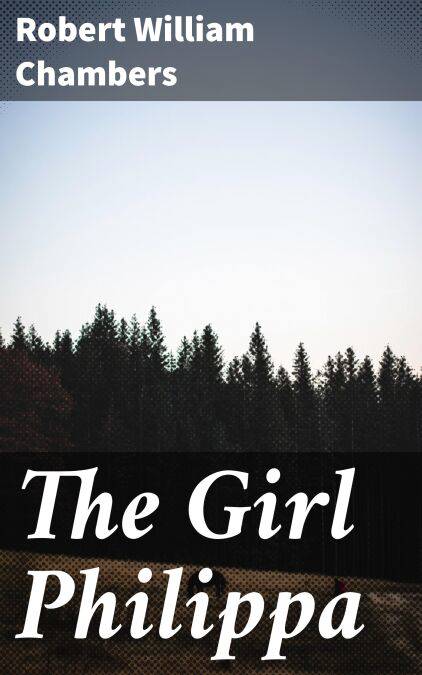
- Afhalen na 1 uur in een winkel met voorraad
- Gratis thuislevering in België vanaf € 30
- Ruim aanbod met 7 miljoen producten
- Afhalen na 1 uur in een winkel met voorraad
- Gratis thuislevering in België vanaf € 30
- Ruim aanbod met 7 miljoen producten
Zoeken
The Girl Philippa E-BOOK
A Tale of Rebellion, Romance, and Identity in 19th Century America
Robert William Chambers
E-book | Engels
€ 1,99
+ 1 punten
Omschrijving
In "The Girl Philippa," Robert William Chambers delivers a poignant exploration of innocence, longing, and the complexities of love set against the backdrop of early 20th-century New York. This narrative, infused with the author'Äôs characteristic blend of lyrical prose and rich character development, unfolds through the eyes of a young woman as she navigates the intricacies of her emotions and the societal expectations imposed upon her. Chambers, best known for his contributions to the psychological fantasy genre, weaves a compelling tale that incorporates elements of impressionism and symbolism, ultimately reflecting the transitional nature of modern life during the period. Robert William Chambers (1865-1933) was a multifaceted American artist and writer whose eclectic body of work illustrates the interplay between aesthetic beauty and human emotion. Influenced by his studies in art and the literary movements of his time, particularly the fin-de-si√®cle era, Chambers often drew from his experiences in fashioning narratives that delve into the human psyche. "The Girl Philippa" emerged at a time when societal norms were evolving, and Chambers'Äô insights into human desire and vulnerability resonate profoundly within this context. I highly recommend "The Girl Philippa" to readers interested in the delicate interplay of romantic ideals and the harsh realities of budding adulthood. This novel not only showcases Chambers'Äô mastery of language and theme but also invites deep reflection on the choices that define our lives. It is a timeless tale that continues to echo in contemporary literary discourse.
Specificaties
Betrokkenen
- Auteur(s):
- Uitgeverij:
Inhoud
- Aantal bladzijden:
- 328
- Taal:
- Engels
Eigenschappen
- Productcode (EAN):
- 4064066366049
- Verschijningsdatum:
- 30/08/2021
- Uitvoering:
- E-book
- Beveiligd met:
- Digital watermarking
- Formaat:
- ePub

Alleen bij Standaard Boekhandel
+ 1 punten op je klantenkaart van Standaard Boekhandel
Beoordelingen
We publiceren alleen reviews die voldoen aan de voorwaarden voor reviews. Bekijk onze voorwaarden voor reviews.








